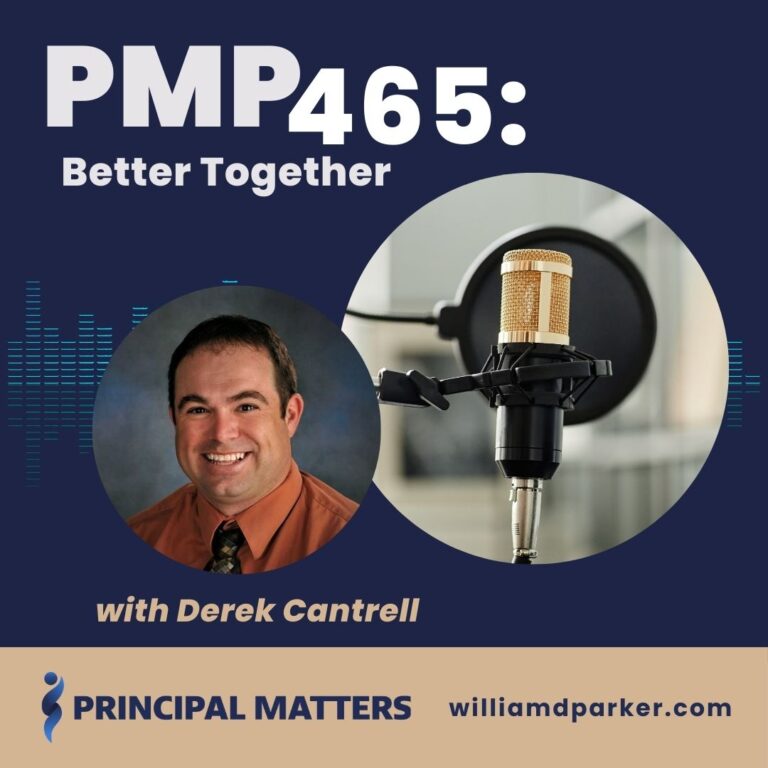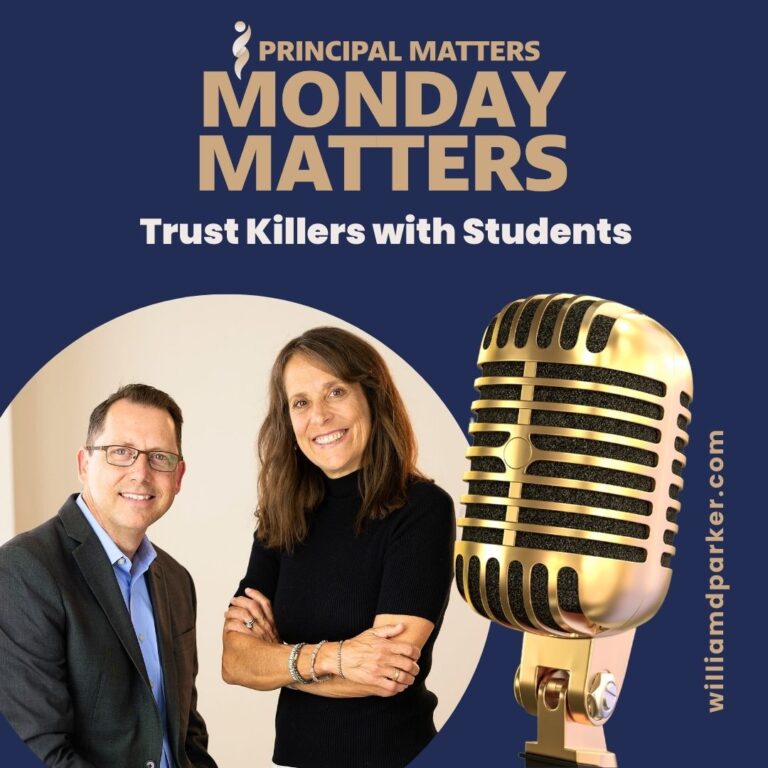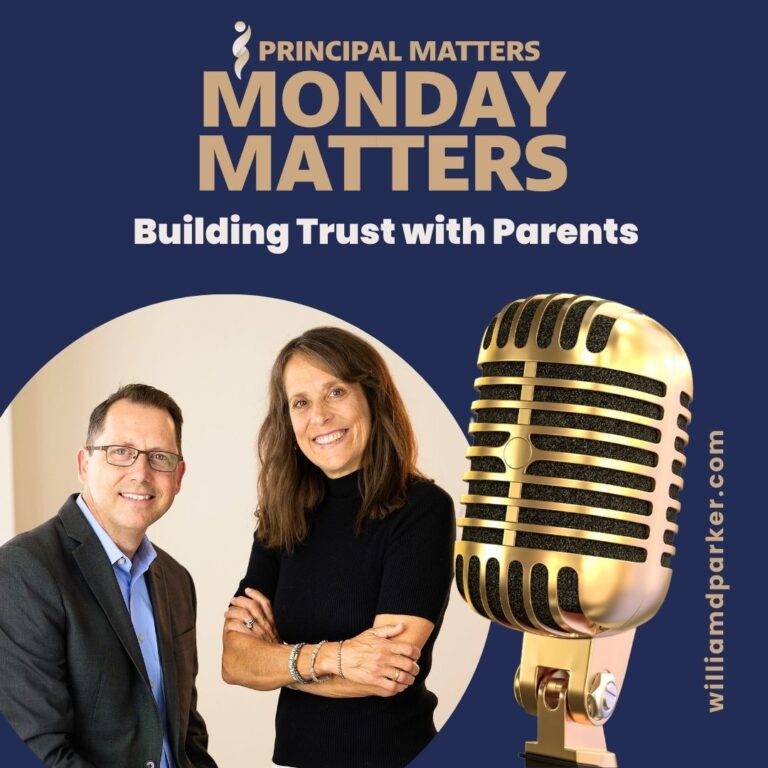Podcast: Play in new window | Download
In this week’s episode of Monday Matters, Will and Jen talk about time spent and 5 areas of trust.
Upcoming Events:
If you’re going to be in St George, Utah, February 12-14, 2025, let Jen know as she’s speaking at the Utah Association of Elementary School Principals.
Will has some upcoming PD in Columbus, Ohio. He and Jen note that every time he goes to Ohio, they try to meet up, but those plans usually fall through.
Time Spent Equals Relationships Built, by William D. Parker
This week I was coaching a district leader who is still relatively new in his position. We were talking about the difficulty of people questioning his credibility and his desire for people to trust his intentions when introducing new ideas or leading change.
We also discussed the reality that some areas of performance were already high, while other areas needed improvement.
How could he continue to push for growth, which was often painful, while also building trust?
One resource I referenced was Stephen M.R. Covey’s book The Speed of Trust: The One Thing That Changes Everything. In the book, Covey discusses how the deeper trust is among team members, the more speed, efficiency, and lower costs are involved in reaching outcomes.
Think about someone with whom you have high trust. How quickly can you accomplish tasks? How much more easily can reach a consensus? How effective is your collaboration, brainstorming, or conflict resolution?
Now think of someone with whom you have low trust. How much harder is it to accomplish tasks? How much more difficult is it to reach a consensus? How less effective is your collaboration, brainstorming, or conflict resolution?
Covey also invites readers to examine 5 areas of trust in their work or organization:
- Self-Trust – examine your integrity, intent, capabilities, and results
- Relational Trust – consider who you are building dividends of trust among team members
- Organizational Trust – analyze how your systems, policies, and procedures support trust
- Market Trust – evaluate how others see your school or organization as a place they are willing to invest their time and resources
- Societal Trust – reflect on the difference or impact that is being made in the wider community because of your school or organization
- Each of these areas can be examined to find ways we can build stronger trust for more effective outcomes.
Trust is not built, however, in a vacuum or in isolation. When you see areas of trust that are stretched, strained or threatened, however, you have a choice. You can step into those moments with an awareness that proximity helps to rebuild trust. Or you distance yourself because the strain is too uncomfortable.
Let’s be real. There are times in any organization or team where some members behave in ways that are not trustworthy. When this happens, they need to be called back to the norms and values we all say are important. If, however, they are unwilling to behave in a trustworthy manner, it is important that they stay uncomfortable until they improve or decide to go elsewhere.
Trust is built over time, and it would take another post to talk about ways to rebuild broken trust or establish it in the first place. However, the foundation of leading change begins with trust.
Reflections:
What are some intentional ways you are scheduling time with others in order to build more trust?
How is visibility with students, teachers, and community members an important way to build trust?
What may you need to say ‘no’ to in the short term in order to ‘yes’ to actions that will build trust in the long term?




